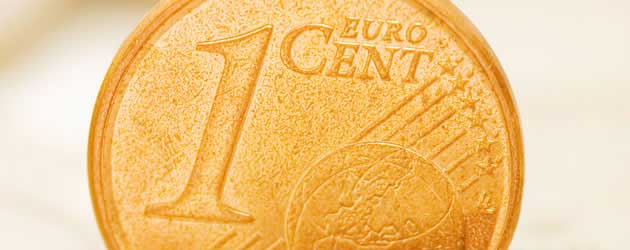
The Pound to Euro (GBP/EUR) exchange rate continued to trade lower on Thursday as Sterling continued to be weighed upon by Wednesdays Bank of England (BoE) Inflation Report and improved Eurozone inflation data.
Sterling remained under pressure against most of its major peers as BoE deputy governor Ben Broadbent reiterated that UK interest rates will not rise for some time and that any rises that do occur will be small.
Also weighing upon the currency was the release of data, which showed that UK house price growth slowed sharply in the three months leading to October.
According to the Royal Institution of Chartered Surveyors (RICS) monthly house price balance fell to a reading +20 in October from +30 in September, its weakest reading since Britain’s economy started to improve more than a year ago.
‘The flatter trend in the market is partly a reflection of potential buyers becoming a little more cautious… as more stringent lending criteria had made it harder to access mortgage finance. However, with new instructions still flat it seems implausible that the dip in demand will result in very much of a decline in house prices,’ said RICS economist Simon Rubinsohn.
The Euro received some support after data showed that the annual rate of inflation in Germany remained unchanged at 0.8% in October. A separate report showed that inflation in France, the Eurozone’s second largest economy saw a rise from September’s level of 0.3% to 0.5% in October. Spain meanwhile saw no change in its inflation level. Italy saw inflation rise to 0.1% as expected by economists.
The GBP/EUR exchange rate continued to fall despite Eurozone economists cutting their growth and inflation expectations. The economists warned the European Central Bank (ECB) that they expect the regions inflation rate to be just 0.5% in 2014 and expect inflation to remain under the ECB’s 2% target in 2015 and 2016.
The Pound to Euro exchange rate continued to decline on Thursday as the slightly improved inflation data out of the Eurozone continued to support the single currency and traders continued to pare back their bets for a BoE interest rate hike occurring next year.
As the session progressed the GBP/EUR exchange rate continued to weaken.
The GBP/EUR exchange rate is likely to experience volatility on Friday as economists focus on a number of key Eurozone data releases. Both inflation and GDP data is due to be published. Improved figures would send the Euro moving even higher. A poor figure and Sterling could recover some of its losses.
Eurozone GDP Data in Focus
On Friday, the Euro strengthened strongly against the Pound and could push back above the 80 level if today’s Eurozone data comes in positively. The single currency edged higher after data released early in the session showed that Germany’s GDP rose by 0.1% in the last quarter and the French economy grew by 0.3%, exceeding forecasts. The improved data eased some fears over a Eurozone recession. The overall Eurozone saw its GDP expand by 0.2%, a figure that was higher than forecasts for 0.1%. The data also saw Greece exit recession for the first time in six years but Italy and Cyprus remain mired in recession.
Euro Exchange Rates
[table width=”100%” colwidth=”50|50|50|50|50″ colalign=”left|left|left|left|left”]
Currency, ,Currency,Rate ,
Euro, ,US Dollar,1.2478 ,
,US Dollar,1.2478 ,
Euro, , Pound Sterling,0.7976 ,
, Pound Sterling,0.7976 ,
Euro, ,Australian Dollar,1.4297 ,
,Australian Dollar,1.4297 ,
Euro, ,Canadian Dollar,1.4105 ,
,Canadian Dollar,1.4105 ,
Pound Sterling, ,Euro,1.2534 ,
,Euro,1.2534 ,
US Dollar, ,Euro,0.8013 ,
,Euro,0.8013 ,
[/table]

